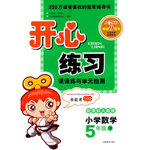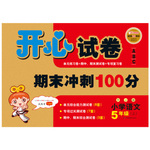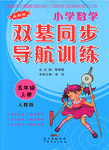题目内容
I am my mother’s third child. When I was born, her doctor gently explained to my mother that my left arm was 41 , below the elbow (肘部). Then he gave her some 42 . “Don’t treat her any 43 from the other girls. Demand more.” And she 44 .
My mother had to work to support our family. There were five girls in our family and we all had to 45 . Once when I was about seven, I came out of the 46 , “Mom, I can’t peel (削皮) potatoes. I only have one hand.”
“You get back to peel those potatoes, and don’t ever use that as a(n) 47 for anything again!”
Of course I could peel potatoes with my good hand while holding them down with my other arm. There was always a 48 , and Mom knew it. “If you try hard 49 ,” she’d say, “You can do anything.”
Once in the second grade, our teacher had each of us race across the monkey bars (高低杠). When it was my turn, I 50 my head. Some kids 51 . I went home crying.
After work the next afternoon, Mom took me to the school play-ground.
“Now, pull up with your right arm,” she advised. She stood by as I practiced, and she 52 me when I made progress.
I’ll never forget the 53 time I was crossing the bars. The kids were standing there with their mouths open.
It was the way with everything. When I 54 I can’t handle (处理) things, I see Mom’s smile again. She had the heart to 55 anything. And she taught me I could, too.
41. A. missing B. broken C. diseased D. short
42. A. warning B. medicine C. help D. advice
43. A. badly B. differently C. well D. normally
44. A. did B. refused C. cried D. was
45. A. find out B. work out C. carry out D. help out
46. A. kitchen B. bedroom C. house D. school
47. A. idea B. change C. excuse D. tool
48. A. chance B. way C. time D. success
49. A. enough B. too C. again D. often
50. A. hurt B. nodded C. shook D. turned
51. A. cheered B. whispered C. joked D. laughed
52. A. helped B. raised C. praised D. protected
53. A. first B. last C. wondered D. next
54. A. admit B. fear C. find D. realize
55. A. face B. teach C. learn D. solve
41. A. 42. D. 43. B. 44. A. 45. D. 46. A. 47. C. 48. B. 49. A. 50. C. 51. D. 52. C.
53. D. 54. B. 55. A.
解析:
41. A. 解析: 从下文可看出她出生时肘部以下就没有了。
42. D. 解析:从空后的句子我们得知,这是医生给她母亲的建议。
43. B. 解析:从下句demand more我们可以得知,医生要她母亲不要因为她残疾就把她和其他的孩子区别对待。
44. A. 解析:did在此相当于demanded more,其它答案不合题意。
45. D. 解析:从下文削土豆皮的经历得知她们姐妹几个都帮母亲的忙。
46. A. 解析:从空后的“Mom, I can not peel potatoes”看,她从厨房走出来。
47. C. 解析:母亲认为那是借口,事实也是如此。
48. B. 解析:从下文的 “If you can try hard enough, you can do anything”得知,办法总是有的。
49. A. 解析:enough 在这里表示程度。
50. C. 解析:从下文得知,这次她没有做,所以选 “shook” 表示摇头拒绝。
51. D. 解析:A, C有较大的干扰性,cheer多表达因为成功、喜悦而欢呼庆祝;joke指开玩笑,在这里作者是说有几个孩子在嘲笑她。
52. C. 解析:因为有进步, 所以目前就该是表扬她。
53. D. 解析: 针对没有成功的那一次而言的第二次。
54. B. 解析:因为是怕不能处理的事情,所以就担心。
55. A. 解析:母亲用心去面对一切事情。从空前的heart我们得知,母亲从心理上能勇敢面对一切困难。

 开心练习课课练与单元检测系列答案
开心练习课课练与单元检测系列答案 开心试卷期末冲刺100分系列答案
开心试卷期末冲刺100分系列答案 双基同步导航训练系列答案
双基同步导航训练系列答案GAOMI, Shandong, Oct.11( Xinhua)—Chinese writer Mo Yan said last Thursday that he was "very surprised" at winning the Nobel Literature Prize.
Speaking to reporters at a hotel in his hometown Gaomi city in east China's Shandong Province, Mo said, "(I was)very surprised upon winning the prize because I felt I was not very senior in terms of qualification(among Chinese writers).There are many good writers and my ranking was not so high."
"I am very happy," he said."I was having dinner when I received the news.I was surprised.”
"Thank you for coming all the way to Gaomi.This should be a season of red sorghum, but no such crop is planted any more.I believe none of you have seen the crop," he said.
"The Nobel Literature Prize is a very important literature prize, but not the top award.It represents the opinions of the jury(评审团 ).I am satisfied with my major works and I still keep writing by hand.My works are Chinese literature, which is part of world literature.They show the life of Chinese people as well as the country's unique culture and folk customs.Meanwhile, my novels described human beings in the broad sense.I wrote in the perspective of a human being.These works stand beyond regions and ethnic groups," he said.
"The folk arts and folk culture accompanied my growth and I was influenced by the cultural elements I witnessed through my childhood.When I picked up the pen for literature creation, the folk cultural elements inevitably entered my novels and affected and even determined the artistic styles of my works," he added.
Mo's win brought joy to other writers and readers throughout the country as he is the first Chinese national to win the Nobel Literature Prize in its century--long history.
Born into a farmer's family in a village in Gaomi, Mo has been known since the late 1980s for his novels such as Big Breasts and Wide Hips and Red Sorghum, which was later adapted into a film by director Zhang Yimou.
【小题1】Mo Yan was surprised at winning the Nobel Prize because he felt .
| A.he was not the best writer in China |
| B.he was not as famous as other writers |
| C.he was born in a farmer's family |
| D.he didn't have good education |
| A.increase our sense of national pride |
| B.learn a lot about the Chinese folk culture |
| C.form a vivid picture of his childhood |
| D.learn more about the history of the Nobel Prize |
| A.romantic | B.self--confident |
| C.modest | D.humorous |
| A.In a novel. | B.In a travel book. |
| C.In a student book. | D.In a newspaper. |
When talking with young Swedish students, Mo Yan showed respect for Chinese authors that he learned writing from, particularly Shen Congwen, who was twice nominated(提名)for the Nobel Prize.
“Lu Xun, Lao She, Mao Dun and Shen Congwen, they are more qualified(有资格的)for the Nobel Prize than me,” he said,. Among the writers he learned from, he said he especially felt close to Shen Congwen, as they have similar life experiences.
Both of them left school early and did not get formal education. Shen quit after high school and Mo only finished the fifth grade. They both joined the army after school. “ We both learned from the book of life,” said Mo.
The themes of their writing are also similar. Both writers have their hometown as the theme and root of their writings. Shen’works are mostly about his hometown, Xiangxi, and most of Mo’s stories are set in his hometown, Gaomi, in Shandong Province.
Mo said he also learned from Shen how to deal with characters in a fiction. Unlike most Chinese writers, Shen has a humanistic(人文主义的) touch towards all of his characters. Said Mo, “In his works, there are no particularly bad person or good person. Even gangsters(匪徒) and thieves have their humane(仁慈的)side,” he said.
“I try to use the same approach in my writing. It shows the ability of a novelist when he treats all the characters as humans,” he said.
Mo said he also learned Lu Xun’s depth and Lao She’s humor. “They are all my teachers, and I am the student,” he said. “I feel ashamed from my heart that teachers did not get the prize, but the student got it.”
【小题1】Which of the following is NOT mentioned as the similarity between Mo Yan and Shen Congwen?
| A.Writing themes | B.Sense of humor |
| C.Life experiences | D.Approaches in writing |
| A.They both love reading throughout their life. |
| B.They both earned their living by writing books. |
| C.They both got nutrition(营养)from life. |
| D.They both experienced many difficulties. |
| A.he described bad persons | B.he created characters |
| C.he made sentences | D.he told stories |
| A.he is a modest person | B.he feels shy |
| C.Lu Xun’s depth influenced his early life | D.he thinks he doesn’t deserve the prize |